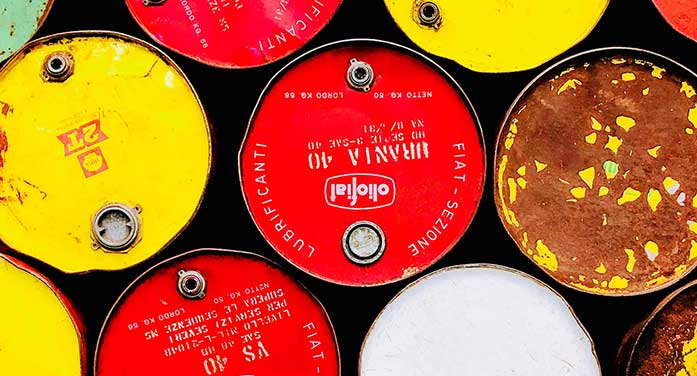 Well, they did it.
Well, they did it.
During their virtual meeting last Friday, finance ministers from the G7 agreed on devising a system that would only allow the sale of Russian oil at below-market prices. “The price cap is specifically designed to reduce Russian revenues and Russia’s ability to fund its war of aggression whilst limiting the impact of Russia’s war on global energy prices,” the G7 ministers said in a statement after their virtual meeting.
The G7 plan called for a broad coalition of countries to set a below-market price for Russian oil – the key is to find a level at which Russia will keep pumping but that is low enough that it doesn’t earn huge profits.
The plan would rely on refusing Russia access to the vital London insurance market, which covers 95 per cent of the global oil shipping industry if it does not respect the price cap.
The idea of the price cap, a brainchild of U.S. Treasury Secretary Janet Yellen, is being seen by many as a personal victory for her. “Today, the G7 took a critical step forward in achieving our dual goals of putting downward pressure on global energy prices while denying Putin revenue to fund his brutal war in Ukraine,” she said on the outcome of the G7 ministerial.
 |
| Related Stories |
| Without Russian oil, can the world produce enough crude?
|
| Can Canada fill the gap if the world quits Russian oil?
|
| Why the world won’t sanction Russian oil |
The EU is also in line with the decision. On the same day the G7 ministers met and adopted the resolution, European Commission President Ursula von der Leyen said she was “firmly convinced” of the need to cap the price of Russian gas exported via pipeline to the EU. The cap, the EU felt, would squeeze Russia financially and rein in soaring energy prices at home.
But questions remain. France, for one, is not too convinced. French Finance Minister Bruno Le Maire told CNBC on Saturday that efforts by G-7 nations to introduce a price cap on Russian supplies would require commitment from the wider international community to be successful. “You need an outreach because we don’t want this measure to be only a Western measure,” he said. “… it should be a global measure against war,” he added. “We know that we need the unity from all the 27 (EU) member states if you want to get the green light for introducing that cap.”
More than that, however, Le Maire said the policy would require participation by other major global economies. Kadri Simson, the EU’s energy chief, also urged the involvement of China and India for the initiative to succeed.
The Kremlin has not been quiet and has vowed to stop selling oil to countries that impose price caps on Russia’s energy exports. “Companies that impose a price cap will not be among the recipients of Russian oil,” Kremlin spokesman Dmitry Peskov told reporters in a conference call, endorsing comments made on Thursday by Russian Deputy Prime Minister Alexander Novak.
Russia has also begun making concrete countermoves. Within hours of the G7 announcement, Russian state giant Gazprom announced an indefinite shutdown of its vital Nord Stream gas pipeline to Germany for ‘technical reasons.’ Gas supplies through the pipeline were initially stopped last week for a planned “maintenance outage” that had been expected to last until Sept. 3.
The move is seen as an effort to slow down gas supplies to energy-dependent Germany and other countries of Europe.
Nord Stream, carrying Russian gas to Germany, has already been running at only 20 per cent of its capacity in recent weeks. Berlin is now increasingly pessimistic about any return to normalcy.
With sales to China, India and other countries booming, Kremlin has been on the offensive, cutting off or limiting supplies to a dozen EU countries. According to media reports quoting the Brussels-based Bruegel think tank, European imports of Russian energy at the end of August were 68 per cent lower than at the same point last year. This presents a bleak scenario for Europe.
Ever since the 1973 oil embargo, the industrialized world kept telling the Arab oil producers not to use oil as a political tool, as a political weapon. Oil is a commercial tool they kept emphasizing. The message was finally getting through.
Not anymore.
Decades of diplomatic work have gone to waste. We are back to square one. Oil and gas are once again a tool to advance political objectives. What a pity!
Who wins this round of the battle is difficult to say. Yet, at this moment, with its ability to make life difficult for Europe, Russia seems to be holding the upper hand.
Toronto-based Rashid Husain Syed is a respected energy and political analyst. The Middle East is his area of focus. As well as writing for major local and global newspapers, Rashid is also a regular speaker at major international conferences. He has provided his perspective on global energy issues to the Department of Energy in Washington and the International Energy Agency in Paris.
For interview requests, click here.
The opinions expressed by our columnists and contributors are theirs alone and do not inherently or expressly reflect the views of our publication.
© Troy Media
Troy Media is an editorial content provider to media outlets and its own hosted community news outlets across Canada.


